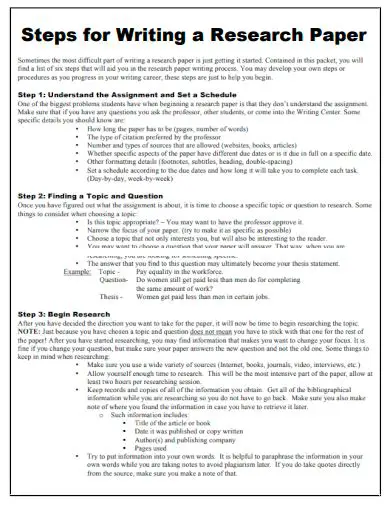Introduction
The length of a research paper varies depending on the field of study, the level of education, and the specific requirements of the assignment. However, there are some general guidelines that can help you determine the appropriate length for your paper.

Length Guidelines
Undergraduate Research Papers
- Lower-level courses: 5-10 pages
- Upper-level courses: 10-15 pages
- Honors theses: 20-25 pages
Graduate Research Papers
- Master’s theses: 50-75 pages
- Doctoral dissertations: 100-150 pages
Factors to Consider
When determining the length of your research paper, consider the following factors:
- Topic: The complexity and scope of your topic will influence the length of your paper.
- Assignment: The specific requirements of your assignment will dictate the minimum and maximum page length.
- Audience: If your paper is intended for a general audience, it will likely be shorter than a paper written for academic peers.
- Citations: The number of sources you cite will affect the length of your paper.
Benefits of a Well-Written Research Paper
- Demonstration of research skills: A well-written research paper demonstrates your ability to conduct research, analyze data, and present your findings clearly and concisely.
- Improved academic performance: Studies have shown that students who write longer research papers tend to perform better in their classes.
- Gaining a deep understanding: The process of writing a research paper forces you to delve deeply into your topic and develop a comprehensive understanding of it.
- Enhanced communication skills: Writing a research paper improves your writing and communication skills, which are valuable in all aspects of life.
Tips for Writing a Long Research Paper
- Plan ahead: Start your research early and give yourself ample time to write and revise your paper.
- Organize your thoughts: Create an outline or mind map to organize your ideas and ensure a logical flow.
- Use headings and subheadings: Break up your paper into smaller sections with clear headings and subheadings to make it easier to read.
- Cite your sources: Use proper citation style to avoid plagiarism and give credit to the authors whose work you have used.
- Revise and edit: Take time to revise and edit your paper carefully to ensure clarity, accuracy, and grammar.
Common Mistakes to Avoid
- Writing too little: Do not fall short of the minimum page requirement. Aim for the recommended length to ensure adequate coverage of your topic.
- Writing too much: Do not exceed the maximum page limit. Concise writing is essential for engaging your audience and effectively communicating your findings.
- Failing to cite sources: Always give credit to the authors whose work you have used. Ignoring citations can result in plagiarism.
- Poor organization: A well-organized research paper guides readers through your argument in a logical way. Avoid jumping between topics or presenting information in a confusing manner.
- Lack of depth: Do not skim the surface of your topic. Conduct thorough research and provide detailed analysis to support your claims.
Conclusion
The length of a research paper should be appropriate for the topic, assignment, audience, and level of education. By considering these factors and following the tips and avoiding the mistakes outlined in this article, you can write a well-written and effective research paper that meets the requirements of your assignment.
